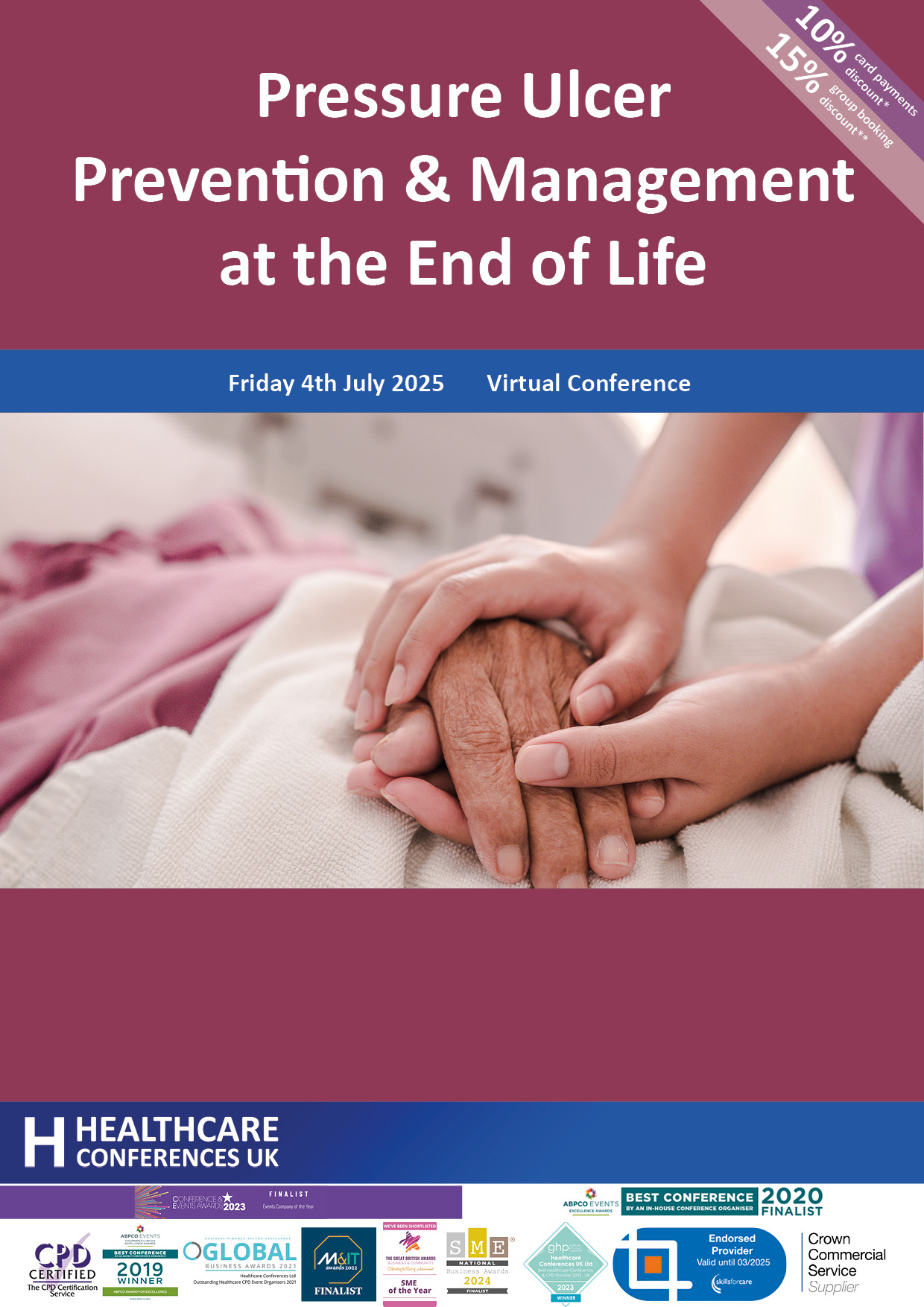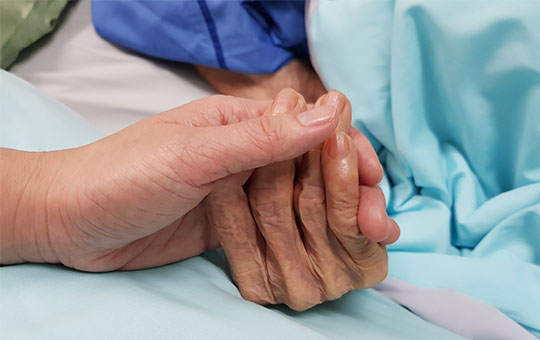Follow the conference on X #PUEndofLife
This conference focuses on the prevention and management of pressure ulcers at the end of life. Wounds are a common occurrence in patients with terminal illnesses, it has been estimated that approximately one third of palliative care patients will experience a pressure ulcer. Pressure wounds are seen mostly in elderly and terminally ill patients as a result skin failure — a naturally occurring process commonly associated with terminal illness wherein the skin begins to break down and die. At the end of life multiple risk factors can lead to pressure ulcers. The prevention and management of pressure ulcers at the end of life must also be balanced alongside the patients preferences presenting ethical dilemmas such as when prevention and active management should stop in the last days of life. Alongside National Update sessions focusing on Pressure Ulcer Investigation and how this is changing under the new Patient Safety Incident Response Framework (PSIRF), this national conference focuses on the reduction and management of pressure ulcers at the end of life, from risk assessment to controlling pain and discomfort in the last days of life.
“Towards the end of the life, there is a greater risk of developing pressure sores.”
Marie Curie 2025
“Improving and sometimes maintaining the patients quality of life. It is a balance of treatment, comfort and maintaining dignity”
Cornish, quoted by Prof Professor Jackie Stephen-Haynes, Professor in Wound Healing, Birmingham City University December 2024
“A hospital’s failure to properly assess and treat an elderly woman with a pressure sore contributed to her having to move into a nursing home, an investigation by England’s Health Ombudsman has found. We're calling on NHS Trusts to learn from errors and make sure opportunities are not missed to avoid potentially life-changing consequences.”
Parliamentary and Health Service Ombudman
This conference will enable you to:
Network with colleagues who are working to improve the prevention and management of pressure ulcers and harm at the end of life
Reflect on national developments and learning including investigation of pressure ulcers and how this is changing under the New Patient Safety Incident Response Framework (PSIRF)
Develop your skills in the management of pressure ulcers, and reducing pain and discomfort at the end of life
Developing effective training and education of frontline staff that will empower frontline teams to take ownership for improving care processes, skin integrity and preventing pressure ulcers
Understand skin changes at the end of life
Learn from outstanding practice in pressure ulcer reporting and investigation
Support patients at the end of life to improve skin care and care planning
Understand the factors that increase the risk of pressure ulcer development
Reflect on ethical and practical issues in the last days of life and consider when active treatment should be stopped
Improve Nutrition and Hydration
Learn from case studies involving pressure ulcers at the end of life
Ensure you are up to date with the latest evidence and definitions
Self assess and reflect on your own practice
Supports CPD professional development and acts as revalidation evidence. This course provides 5 Hrs training for CPD subject to peer group approval for revalidation purposes





